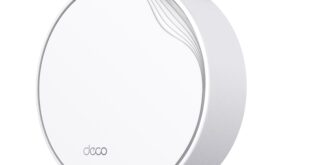The computing sector is now broader than ever before. Devices are smaller and more mobile. And the impact on home networking is massive.
Smart devices have infiltrated homes everywhere. Once upon a time a computer was a box in a corner, and users would faff around extending phone and network cables halfway across living rooms to get to them.
Now, there’s a multitude of products in the average home that need connecting to the internet and a basic wireless router provided by an ISP (internet service provider) may not be enough to satisfy consumers’ demands. They want reliable internet throughout their houses, without unsightly and inflexible wires all over the place.
With this in mind, networking vendor TP-LINK and a group of retailers got together at PCR Boot Camp. The goal: to discuss how the growing popularity of smart devices has created opportunities to sell networking goods, and powerline adapters in particular.
“You’ve got to think about why consumers need powerline,” said Simon Higgins, VAR & Key Account Sales Manager (UK & Ireland), TP- LINK, addressing the group. “It’s because of the sheer amount of products out there, from iPads to notebooks and smart TVs. We’re seeing a massive increase in powerline with wireless, and also in our range extenders.
“We’ve found what people really like is wireless powerline. As they come down in price and add multiple ethernet ports on them, that will make sales even easier.”
Garry Stonehouse, Gbiz IT
“This increase is coming as people learn how these products work – at first, some don’t understand how the internet can go around electrical cables, but once they get it, they realise it’s so easy to set up.” He went on to ask retailers for their experiences.
Craig Hume from Utopia Computers commented: “Networking products are one of the easiest things for us to make margin on. It’s one of the few product areas that still has a good service attachment. A customer can come in and say I’ve seen it on eBay or Amazon or wherever, cheaper than we sell it by £10 or £15, but our sales team says to them that while our products might be more expensive, we can offer the full service. We know there might be a phone call attached to this sale, you might get home and want help. The margin is there that means we can support these customers. In fact, we want more people coming in and asking about networking.”
Prem Malkani from Malkani Computers noted there is sometimes a problem with clients buying products elsewhere and only coming to him for service afterwards. But at least there is that angle – service keeps retail close to customers; it’s a great way to add margin.
The inevitable discussion of price came up too. Simon Higgins emphasised that TP-LINK is working hard to bring in new products at the right price point.
There was debate over whether it was cheaper to buy from distribution, or large etailers like Ebuyer and Amazon. Craig Wyles from Total Computing pointed out: “The relationship with the distributor is really important.”
Working closely with vendors helps too. Simon Higgins commented: “You have to let us know if you’re not getting the right price. We’re here as a vendor to support our resellers. That’s why we started a UK partner programme.”
Garry Stonehouse from Gbiz IT chimed in to say: “The biggest issue for us in the networking sector is not necessarily on price, because we’re not going out to compete on that, because it’s pointless and it’s a different experience when you’re buying from a shop.
“But what we are seeing is a change in the way things are going. We’re selling fewer routers, because the ISPs are giving them away.
“We are selling a lot more powerline adapters now. We’ve found what people really like is wireless powerline. As they come down in price and add multiple Ethernet ports on them, that will make sales even easier.”
A lot of people don’t know these solutions exist and the challenge is explaining the benefits of them, without being patronising.
Wyles added: “Education is important. So many people come into our shop, we take them over to powerline products and they’re almost incredulous at first.”
Adrian James from Computer Bits asked if anyone’s had installing problems. Stonehouse replied: “We’ve never had a problem installing powerline into domestic homes, it always works, every time. Into businesses, it can cause issues because of the way they set up fuse boxes.”
“There’s lots of benefits to the partner programme. We can send out POS material, bags, pens, boxes, dummy samples and videos.”
Simon Higgins, TP-LINK
Knowing a product will ‘just work’ is vital. Hume offered: “When we came to TP-LINK we were surprised with the quality – we don’t do a lot of networking, but we don’t get returns.”
Computer Bits’ James asked: “Right now you are able to sell at a relatively low price, but that’s your positioning. What happens as you get bigger?”
“I’m glad you brought that up,” Higgins said. “We want to stay at those competitive price points, absolutely. We’d actually like to bring the price down on some products.”
Talk turned again to powerline, and the design of those products.
James asked whether TP-LINK offers four-port products. “Yes,” said Higgins. “Sometimes your router won’t be near the TV – that’s one example of where powerline can help – you can have multiple ports working from a device.”
Stonehouse commented: “There’s an issue in some older properties where the plug sockets are very low down and you can’t get them in.”
Higgins explained it’s something the design team is aware of – there are now smaller powerline adapters available.
He concluded by recommending retailers sign up to TP-LINK’s UK partner programme. “We can send out POS material, bags, pens and even boxes and dummy samples. There’s lots of benefits – someone wanted help with a school the other day and we provided a site survey free. Or we can provide video to display in your shop to show customers how easy powerline is to use. There’s lots we can do.”
POWERLINE IN A NUTSHELL
Powerline uses a building’s electrical wiring to connect devices to the router and the internet. They usually come in paired starter kits, though further adapters can be added to the network as needed.
All powerline adapters offer a wired connection (via Ethernet cable) and some models offer a wireless connection too. Users can place a powerline adapter into any room that has a wall socket.
HIGH MARGIN AND VERSATILE
TP-LINK, in conjunction with PCR, has created a white paper that explains the benefits of powerline. Find out why customers need great networks, why powerline adapters are an excellent solution and how you can increase the value of your customers’ shopping baskets by selling them. You can download the TP-LINK white paper for free at www.pcr-online.biz/reports
 PCR Tech and IT retail, distribution and vendor news
PCR Tech and IT retail, distribution and vendor news


